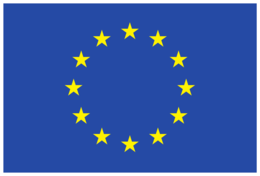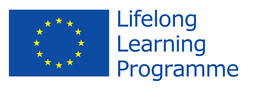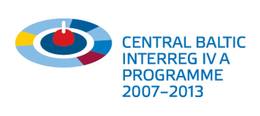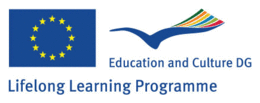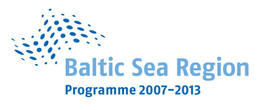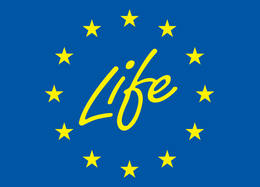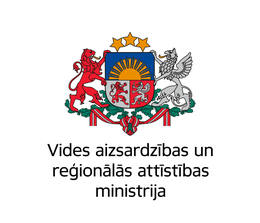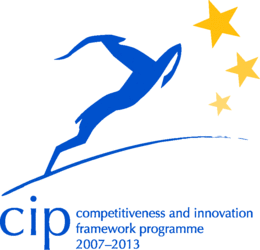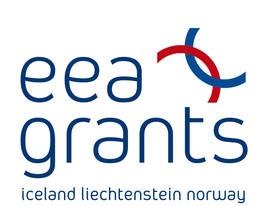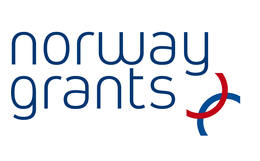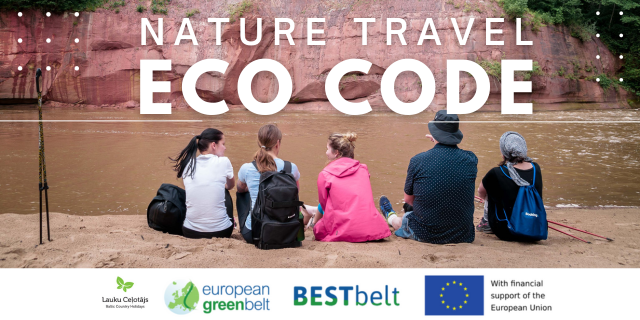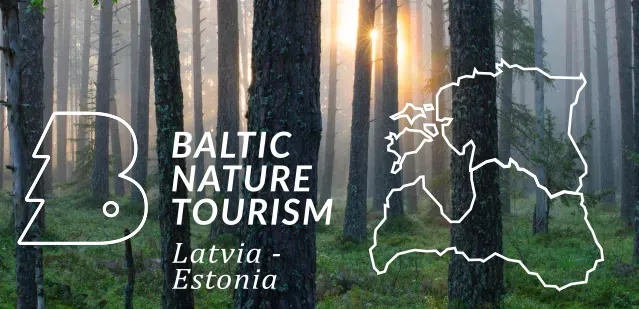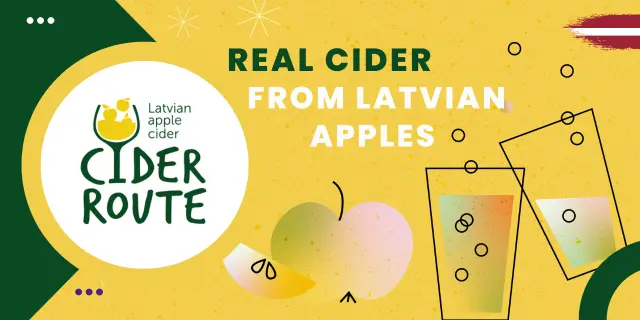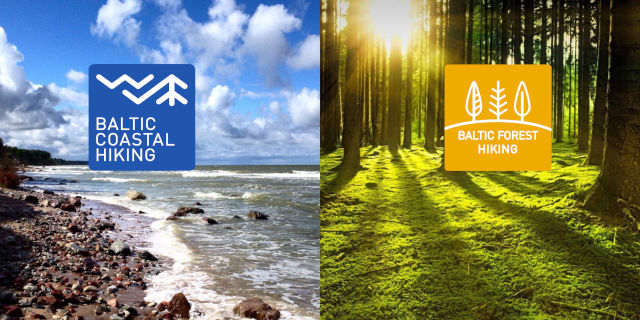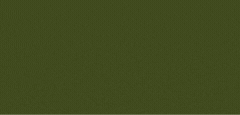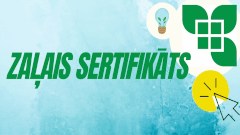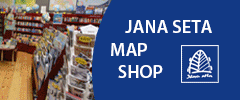Project archive
| Goals | Results | Co-financed by |
|---|---|---|
ProWell - Promoting and Enhancing Rural Wellbeing Tourism Products of Northern Europe (2014 - 2015) (SI2.677286) |
||
| To enchance and promote thematic Rural Wellbeing tourism product in Europe, by supporting transnational co-operation between different tourism stakeholders (micro and small tourism enterprises, destination marketing organizations, tourism development organziations and research institutes). The project aims to profile and add competitiveness of the Northern Europe as a Rural Wellbeing Tourism Destination by supproting tourism service providers providing services under the theme. |
|
Project is a part of EU's Competitivness and Inovvation Programme (CIP). |
Transparency of CSR skills through ECVET in European tourism, TransCSR (2013 - 2015)
|
||
| To foster the acknowledgment and transparency of CSR skills for the European labour market in order to provide companies with skilled employees and on the other hand to increase employability for workers/ job-seekers in the tourism field. |
|
This project has been funded with support from the European Commission. Leonardo da Vinci Transfer of Innovation. |
Marketing campaign for development of rural tourism products in all regions of Latvia and their promotion (2013 - 2014) (13-04-L31300-000006) |
||
| To implement a rural tourism marketing campaign, developing and promoting rural tourism products based on rural resources and traditional values: local and regional food, culture and rural crafts, rural production. | 1) Develop new products:
|
EU European Agricultural Fund for Rural Development (EAFRD) |
Back to nature; Training of Trainers on Rural Tourism (2012 - 2014) (2012-1-TR1-LEO05-35140) |
||
| Aim of the project is to adapt former project results, develop new curricula, training modules and case studies, and thus create a complete course material on rural tourism which will be delivered on-line to the target population of VET teachers, tutors, tourism entrepreneurs and managers. |
|
This project has been funded with support from the European Commission. Leonardo da Vinci Transfer of Innovation. |
Corporate Social Responsibility Training and Certification in the Travel Sector (2012- 2014) (2012-1-HR1-LEO05-01703) |
||
| To introduce Corporate Social Responsibility in the vocational knowledge and skills of current and future European travel professionals in order to secure environmental, social and economic sustainability of the European travel industry. It aims to transfer an established innovative CSR training, assessment and award system collaboratively developed by UK and Dutch travel associations, to other European countries. |
|
This project has been funded with support from the European Commission. Leonardo da Vinci Transfer of Innovation. |
SAFETUR (2012 -2014). Practice based training tool for safety and security in European rural tourism (2012-1-LV1-LEO05-03389) |
||
| Provide a practical and efficient, continuosly updated life-long learning opportunity for tourism micro-SMEs in Europe through improved training accessibility in the field of Safety and Security at workplace and for clients, leading to compliance with cross-european standarts, an increased professionalism, competitiveness through trust and reability and through these, stability and sustainability of rural tourism initiatives in Europe. |
|
This project has been funded with support from the European Commission. Leonardo da Vinci Transfer of Innovation. |
HERITAGE TOURISM (2011-2013) Promoting the use of cultural heritage in service design of rural tourism (CB54) |
||
|
To increase the competitiveness of Estonian and Latvian rural tourism businesses through product development and design of tourism services using national cultural heritage. |
|
|
European Nature System: An ECVET process to put in transparency and recogniseacross Europe the learning outcomes and the qualifications of the professional figures in the nature-based tourism sector ( LLP-LdV-TOI-11-IT-685) |
||
| To put in transparency and recognise the learning outcomes characterising the nature-based tourism professions, applying andimplementing the European tools and frameworks EQF and ECVET. |
|
This project has been funded with support from the European Commission. Leonardo da Vinci Transfer of Innovation. |
Active Tourism for Sustainable Development "transfer of innovative job-related vocational training and methodology "(2011-1-BG1-LEO05) |
||
|
|
This project has been funded with support from the European Commission. Leonardo da Vinci Transfer of Innovation. |
ROUTES 4 (2010-2012) Mentor-supported E-Learning in rural tourism (2010-1-ES1-LEO05-20971) |
||
| The project focusses on four aims: A. define the needs of training for mentors in an E-Learning environment. This will take into consideration different realities for distance- or internet-based learning in Andalusia, Estonia, Latvia, and Bulgaria. B. create training materials for future mentors and students C. test the outcome on five local training activities D. use state-of-art WEB 2.0 to create a virtual community for mentor supported E-learning. |
|
This project has been funded with support from the European Commission. Leonardo da Vinci Transfer of Innovation. |
AKTOS (2010 - 2012) |
||
|
To carry out the transfer of a tool that integrates innovative contents and results and transferthese materials to rural communities in need of a specific training related to the exploitation of the endogenous resources. Association "Lauku celotajs" is partner in this project and is developing trainingmaterial "Active tourism handbook". You can follow latvian partner project activities here
|
The main result that will be transferred within the AKTOS project will be the Good PractisesGuide of the previous FONTES project, that intends to inform the users target groups, about the employment possibilities generated by thedifferent endogenous resources of the rural areas, which in many cases are not yet properly exploited. |
This project has been funded with support from the European Commission. |
Agora 2.0 (2009 - 2012) |
||
| The project focuses on fostering the common identity of the Baltic Sea Region by highlighting, developing and marketing substantial parts of the Baltic Sea Region natural and culturalheritage as business environment and outstanding strength of the region |
|
This project is partly financed by the European Union (ERDF) within the Baltic Sea Region Programme |
POLPROP-NATURA, 2009-2012 (LIFE07 ENV/LV/000981) |
||
| The aim of project is to generate socio-economic effects for the region by a sustainable management ofprotected areas by using European Charter as instrument, by linking protected areas to their regions (accessibility, services, economiclinks), by establishing public-private partnerships between administrations of protected areas, local SME's and regional planningauthorities to create new tourism products and increasing the quality of eco-tourism by establishing a BSR quality standard. |
|
With the contribution of the LIFE financial instrument of the European Community Co-financed:
|
Baltic Green Belt (2008-2011) |
||
| The aim of this project is to facilitate the preservation of biologicaldiversity in the Baltic Sea Region by establishing the Baltic Green Belt as a permanent network of co-operation. |
|
This project is partly financed by the European Union (ERDF) within the Baltic Sea Region Programme |
Parks & Benefits (2008-2011) |
||
| The aim of project is to generate socio-economic effects for the region by a sustainable management ofprotected areas by using European Charter as instrument, by linking protected areas to their regions (accessibility, services, economiclinks), by establishing public-private partnerships between administrations of protected areas, local SME's and regional planningauthorities to create new tourism products and increasing the quality of eco-tourism by establishing a BSR quality standard. |
|
This project is partly financed by the European Union (ERDF) within the Baltic Sea Region Programme |
Aurora 2 (2009 - 2011) |
||
| The aim of the project is to renew and to adapt training module of accomodation and cultural tourism for all partnercountries , translating it in national languages. |
|
The action has received EC funding |
STEPPA (2010 - 2011) |
||
| Project`s main aim is to promote and strengthen the cooperation between the different experiences and certification initiatives for small and micro tourism enterprises working with protected areas and strengthen their competitiveness. |
|
This project is part of the EU's Competitiveness and Innovation Framework Programme (CIP) |
2008-2011 Sustainable use and management of nature resources in the Natura2000 sites - popular and potential tourism destinations in Latvia. |
||
| The project goal is to facilitate maintenance of biological diversity in the Natura2000 sites in Latvia under growing pressure from Tourism. |
|
Supported by a grant from Iceland, Liechtenstein and Norway through the EEA Financial Mechanism and the Norwegian Financial Mechanism |
2008-2010 Transfer of Quality Ensurance Tools for European Rural Tourism Sector |
||
| The project goal is to provide practical and efficient life-long learning opportunity for SMEs in rural tourism in Europe. | Web based training tool for quality, consisting of:
|
The action has received EC funding |
2007- 2008 Awareness rising Natura2000: working with Europe's rural tourism sector |
||
|
|
European Commission |
2005-2008 AGORA-Network Sustainable Tourism Development in the Baltic Sea Region
|
||
| Create a network with 44 partners in ten countries all around the Baltic Sea for developing sustainable tourism with a focus on rural areas. To collect information from tourism projects in the BSR - to save their experience and results and -to make them accessible for interested users. Project leaflet |
|
BSR INTERREG IIIB, Ministry of Agriculture of the Republic of Latvia |
09.2005 - 08.2007 The Rural Tourism Project AMBER |
||
| The project aims to develop a self-learning vocational level training programme. Project summary |
|
EC Leonardo da Vinci programme |
10.2005-10.2007 "SECTOUR Safety and security in tourism - innovations in educational programs and business practice" (Association is a partner in the project) |
||
| The project intends to reduce risk of the safety problems in tourism sector through the development of innovations in tourism education (including further education and adult education). Project leaflet |
The project results will be:
|
EC Leonardo da Vinci programme |
2003-2006 "TOURBENCH - European monitor and benchmarking initiative for the reduction of environmental impacts and cost in tourist accommodation" (Association is a partner in the project) |
||
| To develop a practical and easy European benchmarking tool esp. for micro/small and medium sized tourism accommodation enterprises: to recognize their own environmental impacts and cost/guest, to compare (inter)nationally with similar enterprises and see their own strengths, weaknesses and saving potentials, to get recommendations for immediate action, to assess the perception of guests and to get tips how to apply for a national Eco-label, for the EU-Flower or for EMAS. | Eco-labels and Environmental Management certificates will have first ever in Europe comparable and reliable data from hotels and camping sites on the costs for and consumption of water, energy, cleaning chemicals and the production of disposal waste, per overnight and per m. The comparison of their ecolabelled with non-ecolabelled accommodation shall confirm (or not) the preference of their licensees and shall show the potential for improvement.
Royal Accommodation Award 2006 |
EC LIFE Programme, Latvian Environmental Protection Fund, Ministry of Agriculture of the Republic of Lavia |
2003-2004 A Common Development Strategy of Rural Tourism in the Baltic countries - an Open Source Information System for Small and micro Enterprises in Rural Areas" |
||
| To develop a common open source information and reservation system primarly for the Baltic countries and easily adaptable for use in other pre-accession countries. |
|
EC Phare |
2002-2004 A new approach to training for quality in European rural tourism |
||
| To improve the quality of training, services and products in rural small to micro enterprises. | Quality criteria, approved by international RT organizations, inspection manual, generic model of the quality criteria system (web based application), provider self-evaluation forms (web based and in print form) and virtual inspector training model created. | EC Leonardo da Vinci program, Ministry of Agriculture |
2001-2004 Development of the criteria for the Green Certificate, implementation and control |
||
| To facilitate environment friendly tourism development in rural areas and small towns. |
|
EC Life Programme, Latvian Environmental Protection Fund |
2002 Research "Implementation of the international eco-label "Green Key" criteria system to the hotels in rural territories in Latvia" |
||
| The creation of a common eco-labelling system in the Baltic States and Scandinavia. |
|
Ministry of Environmental Protection and Regional Development of Latvia |
2001 Training course |
||
| To improve professional competencies of rural tourism (RT) product providers through increasing their awareness of the quality requirements, diversification of rural tourism product, financial planni ng, tourist safety and security, marketing, etc. |
|
Ministry of Agriculture of Latvia |
1999-2001 Rural tourism training in Internet |
||
| To provide access to high quality updated vocational training in rural tourism. |
|
EU Leonardo Target programme |
2000 - 2002 Virtual Market Place for Rural Tourism Sales, Development, ICT Services and Applications |
||
| To extend markets between European countries and market European Rural Tourism Micro Enterprise (RTME) products to global markets. |
|
EC IST 5th framework programme |
1999-2001 Analysis of Sustainable Rural Tourism Development Opportunities and Promotion of Environmentally Friendly Tourism in Latvia |
||
| To inform the public about opportunities of sustainable tourism development in Latvia and promote the idea of environmentally friendly tourism among potential tourists as well as product providers. |
|
Latvian Environment Protection Fund, Ministry of Environmental Protection and Regional Development of Latvia. |
2001 Training materials for development of tourist activity facilities |
||
| To promote diversification of RT product - development tourist activitiy facilities. | Training materials for providers of fishing and horse riding services produced. | Ministry of Environmental Protection and Regional Development of Latvia. |
1999-2000 Support to Tourism Development in Latvia |
||
| To facilitate rural tourism development in Latvia. |
|
PHARE programme |
1999 Rural Tourism Development Target Programme |
||
| To elaborate the Rural Tourism Target Programme (for the period 2000-2006) as guideline to RT development as an important part of the Latvian national economy. |
|
Ministry of Environmental Protection and Regional Development of Latvia |
1998 Rural Tourism seminar programme in Germany |
||
| To improve operations of Latvian RT establishments through gaining German expierence about the quality, service, costing and sales of RT product. | Seminar programme organised for Latvian RT product providers in Germany. | Nordhein - Westfahlen |
1998 Country holidays website |
||
| To open a new marketing channel for RT product. | RT website created. | Ministry of Environmental Protection and Regional Development of Latvia |
1997 Rural Tourism Development in Latvia - Diversification of Rural Economy |
||
| To improve the quality of RT product, to increase competitiveness in Europe. |
|
Ministry of Environmental Protection and Regional Development of Latvia |
1997 Rural Tourism Marketing |
||
| To promote development of RT in the Latvian countryside. |
|
Ministry of Agriculture of Latvia |
